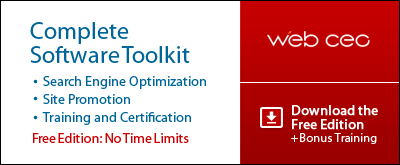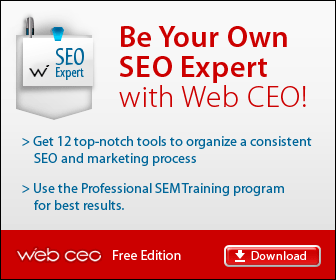SEO Glossary: P
Clicking on the glossary title will take you to further information about the term.
- Page title
- Pagejacking
- PageRank (PR)
- Pageviews
- Paid inclusion
- Paid placement
- Pay-for-performance
- Pay-per-click (PPC)
- Pay-per-post (PPP)
- PHP
- Phrase Match
- Pop-under
- Pop-up
- Portal
- Pull-down list

- Page title
- See "title tag" [edit]
- Pagejacking
- Stealing high-ranking web page content from another site and placing it on your site in the hopes of increasing your own site's search engine rankings. Pagejacking is yet another shady way of gaming the search engines and, as such, its use should be strongly discouraged. [edit]
- PageRank (PR)
- Google uses a weighted form of link popularity called PageRankô. Not all links are created equal. Google differentiates a link from an important site (such as CNN.com) as being better than a link from Jim-Bob's personal home page. The Google Toolbar (which is a free download from http://toolbar.google.com) has a PageRank meter built into it, to see which web pages are considered important by Google and which aren't. PageRank scoring ranges from 0 to 10, 10 being the best. PageRank scores get exponentially harder to achieve the closer to 10 they are. For example, increasing your own homepage's PageRank from a 2 to 3 is easy with not a lot of additional links, jumping from a 7 to an 8 is very difficult to achieve. The higher the PageRank of the page that's linking to you, the more your site's PageRank will benefit. The better your PageRank, the better you'll do in Google, all else being equal. [edit]
- Pageviews
- see "Impression" [edit]
- Paid inclusion
- paying a search engine to have your web pages included in that search engine's index. [edit]
- Paid placement
- paying a search engine to have your listing show up prominently. These listings are usually denoted as "sponsored listings." [edit]
- Pay-for-performance
- a pricing model based on delivering sales or something else that can be directly attributed to the bottom line. Contrast this with traditional banner advertising which is based on impressions, a chunk of which come from people you have no desire or ability to do business with. [edit]
- Pay-per-click (PPC)
- a pay-for-performance pricing model where advertising (such as banners or paid search engine listings) is priced based on number of clickthroughs rather than impressions or other criteria. Overture is an example of a search engine which charges advertisers on a pay-per-click basis.
[edit] - Pay-per-post (PPP)
- A website designed to help content creators such as bloggers find advertisers willing to sponsor specific content. [edit]
- Adobe's Portable Document Format, a file format that renders the page exactly as intended regardless of the computer used. Typically used for creating documents that will be printed. PDF is used instead of HTML when the content creator wants absolute control over the display of the document. In contrast, the display of an HTML document depends on the computer and web browser software used. [edit]
- PHP
- an "open source" programming language for building dynamic web sites. PHP can be used to write server-side programs that access databases. PHP is the most popular web programming language - more popular than Microsoft's ASP (Active Server Pages), JSP (Java Server Pages), and Macromedia's Cold Fusion. PHP is especially well-suited for Web development and can be embedded into HTML. PHP is secure, easy to learn, efficient, fast to code and fast to deploy. PHP is being used by over nine million web sites (over 24% of the sites on the Internet), due largely to benefits such as quicker response time, improved security, and transparency to the end user. [edit]
- Phrase Match
- Phrase Match is a form of keyword matching where an ad will be displayed if the user's search query includes the exact phrase, even if their query contains additional words.
For example if the terms "running shoes" are associated with an ad and the user searches upon the term "blue running shoes", the ad will be displayed.
However, the ad will not be displayed if the search query is "shoes for running". [edit] - Pop-under
- A pop-up that appears underneath the currently active web browser window. An annoying, if not shady, tactic used by some web advertisers. [edit]
- Pop-up
- A web page that displays within a new, typically smaller, web browser window, rather than the currently active browser window. Search engine spiders don't typically follow pop-up (or pop-under) links. Pop-ups are often times used for promotions, ads, email newsletter invitations, survey invitations, and the like. [edit]
- Portal
- A site that functions as a point of access to information on the web. Portals are either authoritative hubs for a given subject or popular content driven sites. [edit]
- Pull-down list
- On a web form, where the user chooses from a list of items. For example, if you are asked to identify which country you are from, this will typically be done using a pull-down list. A pull-down list is usually displayed with the first item within a box and a down arrow immediately to the right. Clicking on the down arrow will display the full list to choose from. Search engine spiders can't fill out forms or pull down on lists, so content that is only accessible through pull-down lists will not be indexed and will be part of the "Invisible Web." [edit]




